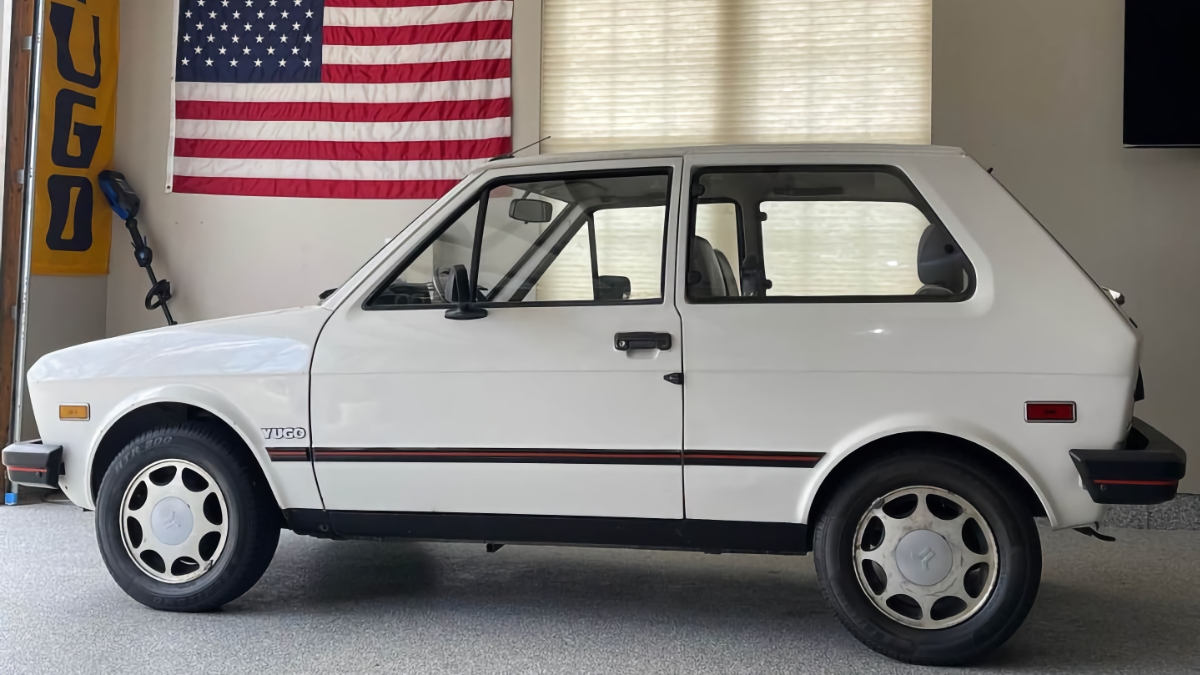At $8,000, Could This 1988 Yugo GVL Have You Laughing All The Way To The Bank?
Once considered little more than a punchline, this Yugo’s condition may mean the joke’s on us.
The asking price on today's Nice Price or No Dice Yugo is almost exactly twice the original MSRP from the model's introduction in 1985. Let's see if that price has you doubled over with laughter.
I think the best word to describe yesterday's heavily-modded 1963 Chevy Corvair 95 Van is polarizing. Well, polarizing with muffled screams of horror over what had been wrought upon the seemingly undeserving van. As one might imagine, such a strong visceral reaction also affected opinions on the Chevy's price, which at $6,500, went down in an 87 percent No Dice loss.
It's been offered that laughter is the best medicine, and considering all the jokes that arose at the expense of the little Zastava-built Yugo, it might be considered the world's greatest salve for the down-spirited.
You know the jokes I'm referring to. How do you double a Yugo's value? Fill its tank with gas. Why do Yugos have rear-window defrosters? To keep the hands of the people pushing it warm. Etcetera, etcetera. Yadda, yadda, yadda.
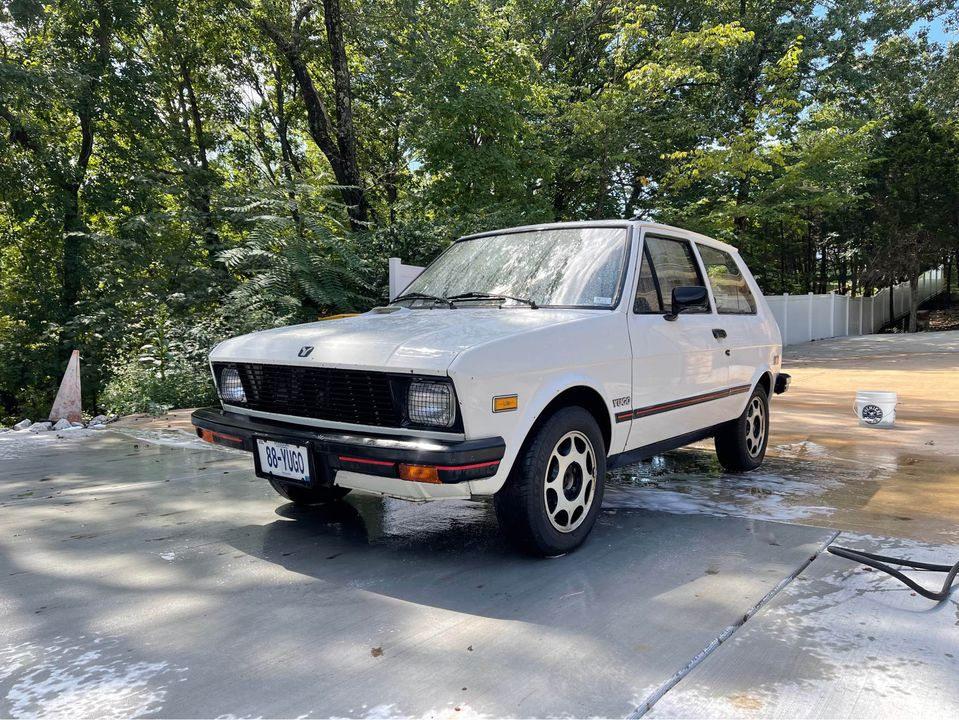
Most of those jokes arose following the Yugo's introduction to the U.S. market in 1985. The quality of the Eastern European import was not up to the standards of the competing Japanese cars, nor even that of the contemporary Hyundai Excel, which was hunting the same buyer demographic. The car was also considered puny by 'Murican standards. All that meant was even though it started out at a mere $3,995 at its introduction, several thousand under what most other entry-level cars cost, the Yugo was not seen as a particularly good car or value. Instead, it became a joke.
Well, let's see who's laughing now. With most Yugos having gone to the scrapper despite an oddly endearing cult following, the remaining cars do seem to be enjoying a bit of long-overdue respect.
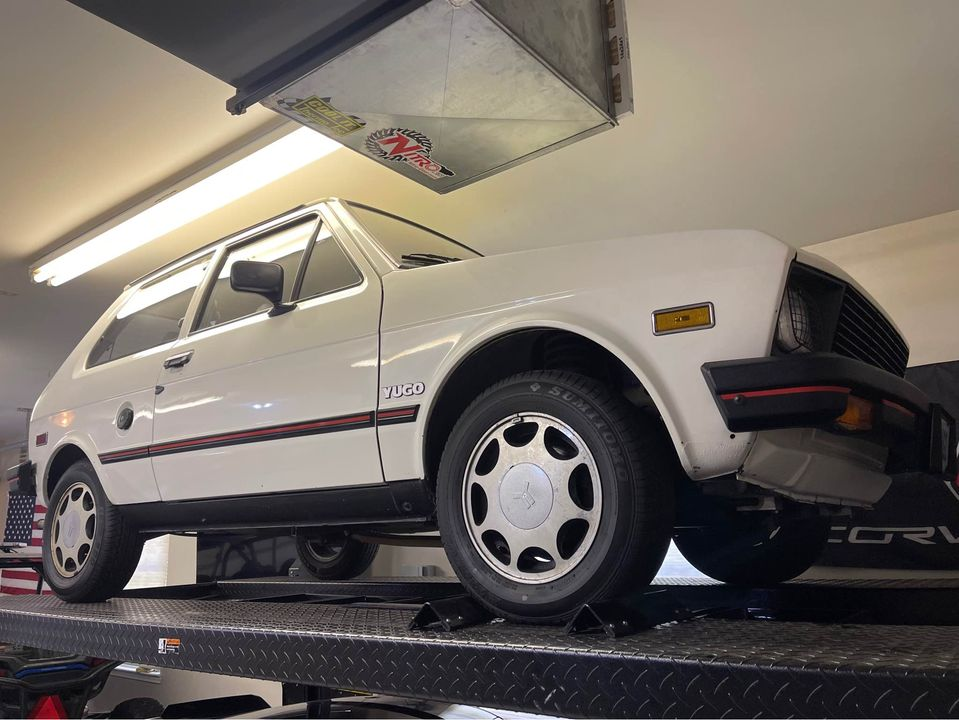
Kitsch factor notwithstanding, there's also just so much interesting — and eventually tragic — history surrounding the little car. Built in what was then Yugoslavia (hence the Yugo name), the Fiat 128-based hatchback came to America under a deal made between Malcolm Bricklin and Zastava Automobiles in 1984. Yugo was just one of a number of automotive brands to dip a tenuous toe into the American market at the time.
The Bricklin name is a familiar one to car enthusiasts, since he had previously introduced Subaru to America and had attempted to launch his own Canadian-built Corvette competitor here. Both of those efforts were back in the '70s. In the mid-'80s, at the time of the Yugo deal, Bricklin was importing to the U.S. Fiat's 124 Spider and X1/9 under, respectively, the Pininfarina and Bertone brands.
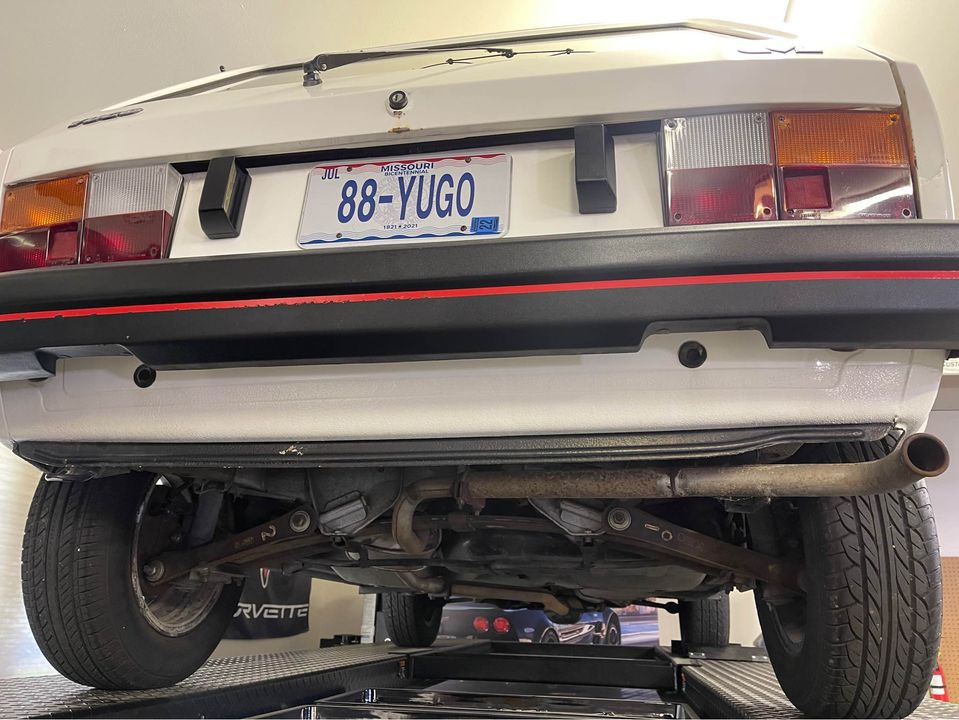
Debuting the model in 1985, Bricklin and Yugo spent the next seven years struggling with sales and warranty claims before pulling the plug. Sadly, it wasn't the car's reputation or having developed into the punchline for plenty of jokes that killed it. It was instead, the Yugoslav war that upended the supply chain and would eventually bomb out part of the Zastava factory where the Yugo was built.
Of course, all the best comedy is born from tragedy and so it's not unwarranted to have mixed emotions regarding this 1988 Yugo GVL. According to the ad, this survivor lived most of its life in California and hence is free of road rot. The Aspen White over gray econobox sports alloy wheels with only half the number of original center caps, but otherwise seems complete.
It also has the standard 1116cc SOHC four-cylinder engine, good from the factory for 55 horsepower and 57 lb-ft of torque. That's mated to a four-speed manual transmission, with the entire driveline efficiently sharing space with the spare tire.
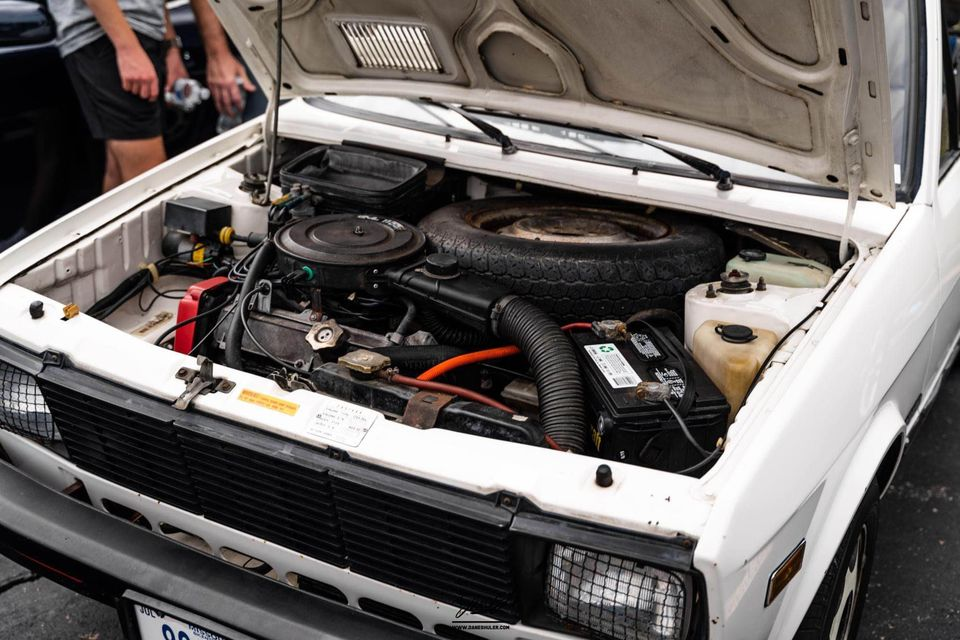
There doesn't seem to be anything wrong with the car, at least the seller hasn't led on in the ad. Per the description, the 49,800-mile car "looks and drives great for its age." That seems to be borne out in the pictures, which show a clean car with few evident issues in the bodywork or paint. The interior seems reasonably decent as well, with only what looks to be a broken horn button and some wavy-gravy dash panels spoiling the car's hitting streak. I'm not sure if Audiovox was the Yugo's stereo supplier at the time, but the period-correct AM/FM/cassette head unit is a nice touch here too.
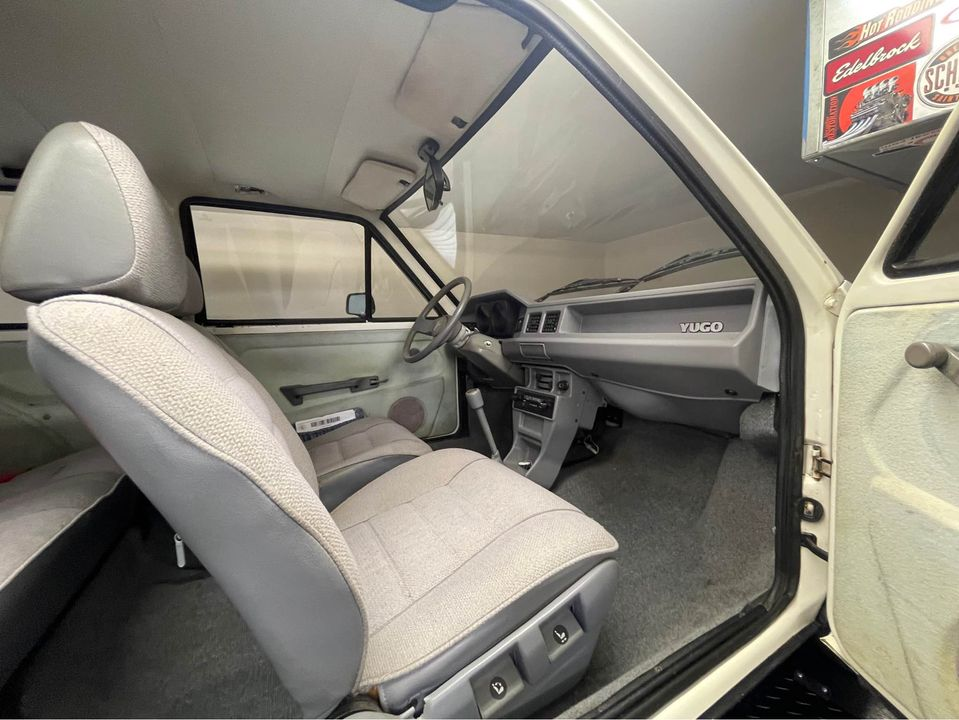
Some additional perks with this particular Yugo include all the original paperwork, including the sales contract and the manuals, and a clean title. What should a package like this reasonably cost?
The Yugo's seller is asking $8,000 for the car, or ten bucks more than double the model's introductory price of $3,990 back in 1985. That's a lot for a Yugo, but, you know what? If you want one, this looks to be a good option.
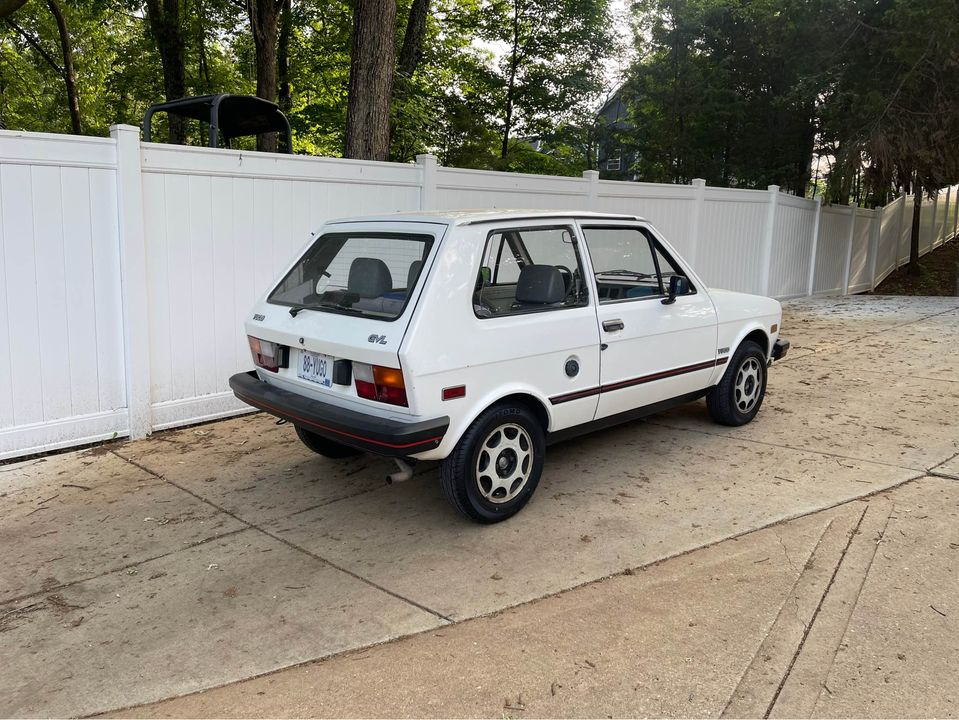
What do you think? Is $8,000 a fair price for this Yugo as it sits? Or, is that price just a joke to you?
You decide!
Facebook Marketplace out of Arnold, Missouri, or go here if the ad disappears.
H/T to Don R. for the hookup!
Help me out with NPOND. Hit me up at rob@jalopnik.com and send me a fixed-price tip. Remember to include your Kinja handle.
